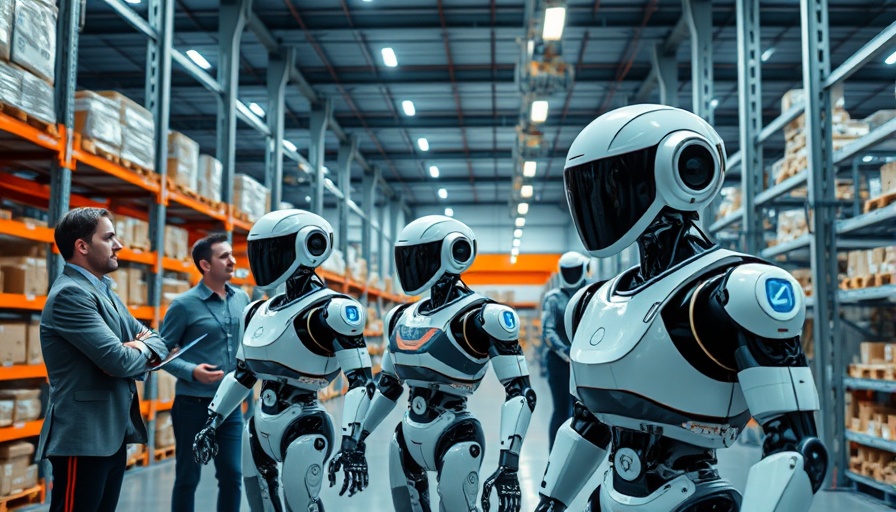
The Energy Crunch: AI's Hunger for Power
Former Google CEO Eric Schmidt's recent testimony before Congress has sparked alarm about the future energy demands of artificial intelligence. Schmidt predicted that the technology sector's electricity consumption could soar from the current 3% to a staggering 99% of total electricity generation in the coming years, prompting an urgent call for diversified energy sources. This projection raises critical issues for small business owners who rely on stable energy prices and availability to sustain their operations.
Future Predictions: The Superintelligent AI Scenario
Schmidt's warning resonates with echoes of dystopian narratives, suggesting that if the U.S. doesn't lead in AI development, countries like China might take the reins, altering global power dynamics irrevocably. For small business owners, this could mean shifting market landscapes, increased competition, and potentially higher operational costs, especially if energy becomes a scarce commodity due to excessive demand from AI technologies.
How Will Small Businesses Adapt?
As businesses brace for these changes, understanding energy efficiency becomes vital. Small business owners can benefit by investing in energy-efficient technologies and practices, not only to reduce costs but also to align with future energy landscapes. Solar panels and other renewable resources may become more feasible and appealing solutions.
Counterarguments: The Realities of AI Development
While Schmidt's projections may be ambitious, many experts argue that the timeline for achieving superintelligence is exaggerated. AI's current capabilities still face significant limitations, from ethical considerations to practical implementations. This means that while energy demands will rise, the immediate crisis Schmidt foresees may unfold more gradually, giving businesses time to adapt. Emphasizing a balanced perspective can help alleviate undue panic among small business owners.
Actionable Insights: Preparing for the Future of Energy and AI
Given the potential shift in energy consumption attributed to AI, small business owners should proactively strategize for the future. Engaging in discussions about energy use with local policymakers can play a crucial role in ensuring that the interests of small businesses are represented in energy strategies and regulations. Additionally, exploring energy partnerships with local green initiatives can create supportive networks for managing costs and environmental impacts.
Common Misconceptions: Unraveling the Hype Around AI
Many misconceptions surrounding AI fuel unnecessary fear. Common myths include the belief that AI will imminently displace human jobs entirely or that it will lead to a catastrophic energy crisis. Understanding the nuances and realities of AI and its development can empower small business owners to engage with technology rather than fear it. This perspective is not only more rational but also healthier for making informed decisions about investments in technology.
Conclusion: Preparing for Tomorrow, Today
In light of Eric Schmidt's concerning forecasts about the future energy demands of AI, small business owners must stay informed and proactive. By investing in energy efficiency and engaging with local energy policies, businesses can mitigate risks and seize opportunities that arise from ongoing technological advancements. It's crucial to balance innovation with sustainability, ensuring that the future remains bright for small enterprises in an evolving economy.
 Add Row
Add Row  Add
Add 




 Add Row
Add Row  Add
Add 

Write A Comment